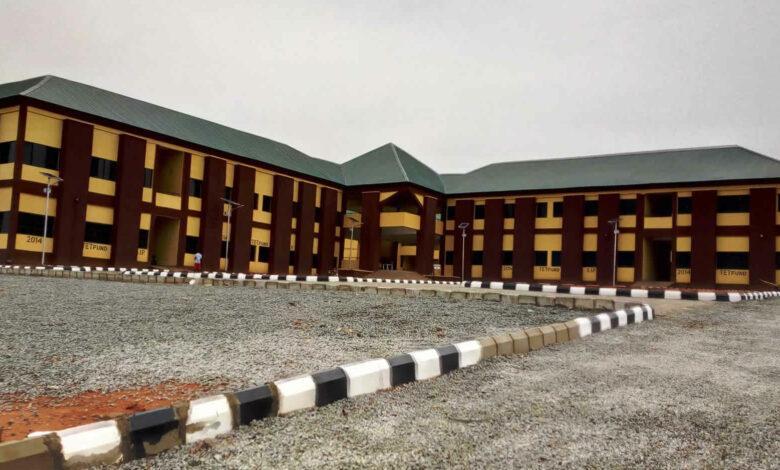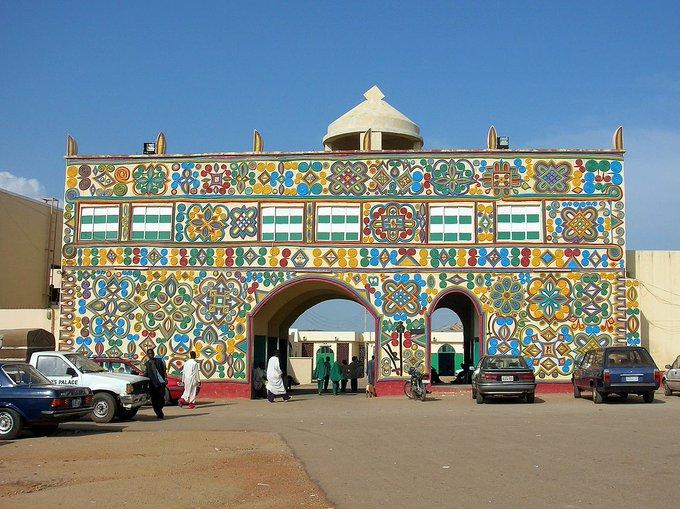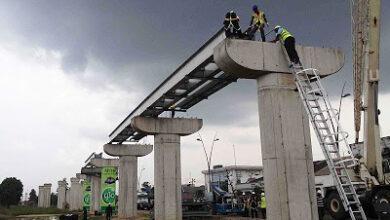
Top 15 Traditional Architectures in Southern Nigeria
Top 15 Traditional Architectures in Southern Nigeria – Southern Nigeria is home to a diverse range of ethnic groups, each with their unique architectural styles that reflect their cultural heritage. In this article, we will delve into the top 15 traditional architectures in Southern Nigeria, showcasing the distinct designs, construction techniques, and cultural significance of each structure. From the stilted houses of the Ijo people to the terracotta houses of Nsukka, let us embark on a journey to discover the captivating traditional architecture of Southern Nigeria.InformationGuideNigeria
Top 15 Traditional Architectures in Southern Nigeria
Read Also: 15 Best Rice for Nigerian Jollof Rice
👉 Relocate to Canada Today!
Live, Study and Work in Canada. No Payment is Required! Hurry Now click here to Apply >> Immigrate to Canada
-
Ota Igbo:
Ota Igbo, also known as the Igbo earth shrine, is a traditional architectural structure found in various Igbo communities. These shrines, made of mud, wood, and thatch, serve as sacred spaces for worship and community gatherings. The Ota Igbo showcases the architectural ingenuity of the Igbo people and their deep connection to their spiritual beliefs.Top 15 Traditional Architectures in Southern Nigeria
-
Usaka:
Usaka is a unique architectural style found among the Efik people in Cross River State. Usaka houses are known for their elevated platforms and steeply pitched roofs. These structures showcase intricate carvings and decorative elements that represent the status and wealth of the homeowners. Usaka houses are emblematic of the Efik people‘s cultural heritage and craftsmanship.NYSC Portal
-
Efik Town Houses:
Efik town houses are prominent architectural structures in Calabar, the capital city of Cross River State. These houses feature a blend of Victorian and indigenous architectural elements. They often have large verandas, ornate balconies, and colorful facades, reflecting the fusion of European and Efik architectural styles.NYSC Portal
Read Also: 15 Best Low Calorie Food for Weight Loss
-
Bini Buildings:
The traditional architecture of the Bini people, located in Edo State, is renowned for its elaborate palaces and royal structures. The Bini buildings, characterized by their intricate carvings and mural decorations, represent the power and prestige of the Benin Kingdom. The royal palaces and ancestral shrines showcase the architectural grandeur of the Bini people.
-
Yoruba Mud Architecture:
Yoruba mud architecture is prevalent in southwestern Nigeria and is characterized by the use of mud, thatch, and timber. These structures feature walls made of compacted earth and roofs made of palm fronds or corrugated iron sheets. Yoruba mud architecture is prominent in residential buildings, communal compounds, and historical sites such as the Ife and Owo bronzes.
-
Ijo Stilted Houses:
The Ijo people, who reside in the Niger Delta region, have adapted to their watery environment by constructing stilted houses. These houses are elevated above the water on wooden stilts and feature thatched roofs. The Ijo stilted houses are not only functional but also showcase the resourcefulness and adaptability of the community’s architectural style.
👉 Relocate to Canada Today!
Live, Study and Work in Canada. No Payment is Required! Hurry Now click here to Apply >> Immigrate to Canada-
Hausa Gidan Daura:
Gidan Daura is a traditional architectural style found among the Hausa people in Northern Nigeria, which has also influenced the architectural landscape of Southern Nigeria. These buildings are characterized by their ornate designs, intricate carvings, and decorative elements such as grilles and screens. Gidan Daura reflects the cultural identity and architectural traditions of the Hausa people.
Read Also: Top 15 Export-Oriented Businesses in Nigeria
-
Kanuri Sahel Architecture:
The Kanuri people, predominantly found in Borno State, have a unique architectural style influenced by the Sahel region. Kanuri buildings feature mud walls, flat roofs, and intricately carved wooden doors. The architectural style reflects the desert environment and the cultural heritage of the Kanuri people.
-
Tiv Tukul Huts:
Tiv Tukul huts are traditional structures found among the Tiv people in Benue State. These circular huts are constructed with locally available materials such as grass, mud, and bamboo. The Tiv Tukul huts represent the community’s agricultural lifestyle and their sustainable approach to architecture.
-
Igbo Ukwu Ukwu:
Igbo Ukwu Ukwu is an ancient architectural structure found in Anambra State, specifically in the Igbo Ukwu community. These structures are characterized by their distinctive conical shapes and intricate designs. Igbo Ukwu Ukwu showcases the architectural prowess of the Igbo people and their rich cultural heritage.
-
Nsukka Terracotta Houses:
Nsukka, located in Enugu State, is famous for its terracotta houses. These houses are built with burnt clay bricks and showcase intricate designs and decorative motifs. Nsukka’s terracotta houses are a symbol of the community’s creativity and the preservation of traditional building techniques.
-
Owo Bronzes:
The Owo Bronzes, located in Ondo State, are renowned for their artistic and architectural significance. These bronze artifacts feature intricate carvings and elaborate designs that reflect the cultural heritage of the Owo people. The Owo Bronzes highlight the community’s artistic prowess and their contribution to Nigeria’s architectural heritage.
-
Ife Bronzes:
The Ife Bronzes, found in Osun State, are famous for their artistic and historical value. These bronze sculptures depict human figures and showcase remarkable craftsmanship and attention to detail. The Ife Bronzes represent the artistic and architectural achievements of the ancient Ife civilization.JAMB Form
-
Kano City Walls:
The Kano City Walls, located in Kano State, are a testament to the city’s historical significance and architectural heritage. These ancient walls, constructed with compacted earth, served as protective fortifications for the city. The Kano City Walls showcase the architectural prowess of the community and its ability to create monumental structures.
Read Also: 15 Best Rice for Nigerian Jollof Rice
-
Sukur Cultural Landscape:
The Sukur Cultural Landscape, a UNESCO World Heritage Site located in Adamawa State, is renowned for its unique architectural features. The community’s homes are constructed with mud, wood, and thatch, forming a cohesive architectural ensemble. The terraced fields, huts, and granaries within the landscape showcase the resourcefulness and ingenuity of the Sukur people.Love Messages
Conclusion:
Southern Nigeria is a treasure trove of traditional architectural styles that reflect the region’s rich cultural heritage and diverse ethnic groups. From the stilted houses of the Ijo people to the intricate designs of the Ife Bronzes, each architectural marvel tells a unique story and represents the artistic and cultural achievements of its respective community. Exploring the top 15 traditional architectures in Southern Nigeria provides a fascinating journey through history, art, and the ingenuity of the Nigerian people.Romantic Love Messages
Check: JAMB Result
Check and Confirm: How much is Dollar to Naira today








